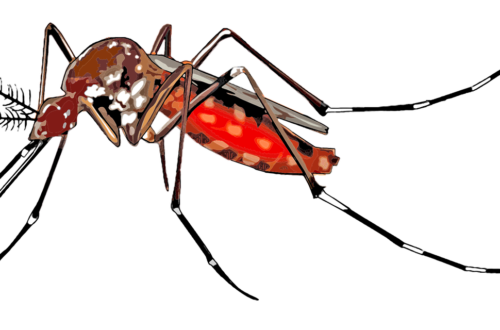Eco-anxiety affects people across generations but mainly impacts younger people. This phenomenon shouldn’t surprise anyone, as millennials and Gen Zers have different attitudes toward sustainability than the generations before. Learn what it is and how to cope with it.
What Is Eco-Anxiety?
The American Psychological Association describes eco-anxiety as having persistent fears of environmental doom — a state of despair relating closely to these concepts:
- Solastalgia: Getting homesick when you’re still home due to unrecognizable surroundings and destructive changes caused by human activity or the climate.
- Ecological grief: Feeling poignant sorrow for witnessing your homeland lose its physical features and native flora and fauna.
It generally stems from sadness, guilt, and anger toward climate change. Other nature-related social issues — such as waste, pollution, deforestation, and habitat loss — may also elicit strong negative emotions.
On the one hand, experiencing climate anxiety means you take global warming seriously, acknowledging what must change and refusing to sit idly as it happens. On the other hand, allowing it to fester can decrease your mental well-being more than climate change’s adverse effects. Extreme cases may result in depression, substance abuse, domestic violence and worse.
How to Deal With Eco Anxiety
If you feel incredibly anxious and affected by today’s pressing environmental issues, use these six healthy coping strategies to maintain your mental fitness.
1. Take a Break From Media
Stop following environmental news for a while. Staying informed is one thing. Feeling overwhelmed by events and updates is another. Distance yourself from any media when it triggers a stress response.
Consuming media — traditional or social — can skew your view of reality. Everyone — including the sources you trust — has an agenda. Most publishers and content creators financially benefit from getting a reaction from people. Because of this, some will always exaggerate stories or highlight specific parts to draw attention and compel engagement.
Unplug for a few hours, days, or weeks. If you can’t, mute your accounts or tweak your news feeds to avoid upsetting stories like night-calling birds colliding with buildings and turtles choking on plastic. You can always bring yourself up to speed later when your mental health improves.
2. Focus on Unrelated Hobbies
Think of a hobby that brings you joy and has nothing to do with the environment. Life-affirming hobbies are healthy distractions — a form of escapism to help you forget about the distressful realities of life.
More importantly, anything you do for leisure instills a sense of control in your daily life. Facing environmental problems can make you feel powerless and useless because making a significant, lasting change on a global scale requires resources and influence. Recognizing and concentrating on the things within your control can be rewarding.
3. Find Your Community
Network with like-minded people. Surrounding yourself with individuals who share your passion for the environment may provide a sense of belonging. It reminds you that you’re not alone in this fight — many like you are doing their best to right societal wrongdoings. Discuss your feelings with them and listen to their worries to ease each other’s eco-anxiety.
4. Use Feelings to Fuel Action
Channel your emotions to be part of the solution. Capitalize on your enthusiasm and vigor to support a cause you believe in. If you can’t make a sustainable career out of it, volunteer and use your free time to make your local community greener.
5. Prioritize a Certain Issue
Dedicate your resources to a cause you’re most passionate about. The fight for the environment is multifaceted, and you can’t be in all theaters simultaneously.
Working on various activities at once creates an illusion of productivity and accomplishment. However, engaging in half-measures may backfire. You may feel burnt out before meaningfully attaining anything. Instead, choose one environmental issue to focus on to conserve your bandwidth and avoid overload.
For example, plastic pollution — the world produces about 300 million metric tons of plastic yearly, contributing to climate change, waste, and health. Take a deep dive into this issue’s complexities. Studying the problem’s root, identifying the worst culprits, and exploring solutions can help you make informed decisions. It may enlighten you that actively participating in the circular economy is more feasible than eradicating plastic altogether.
Giving some environmental issues priority over others doesn’t mean you ignore the rest. You can do the bare minimum to help mitigate other problems, such as driving an electric car and buying photovoltaic panels. Giving your undivided attention to a specific issue instead of circling through various activities helps you make headway in your advocacy more quickly and feel more fulfilled.
6. Go Easy on Yourself
Be compassionate with yourself and others about environmental action. There are limits to what anyone can do for the planet. Even the hardest-working environmentalists think they should do better. You may hone in on your deficiencies no matter how hard you try to be a force for good.
Inadequacy is more of a state of mind than a reflection of reality. Nature conservation is a never-ending pursuit — not an objective you can put a deadline on or something you can fully accomplish in your lifetime.
Take comfort in this knowledge to unburden yourself of your climate anxiety. Count your wins — like successfully making cleaning supplies at home or creating zero food waste for a week — instead of getting upset over perceived losses.
Eco-Anxiety Crisis Is Worse Than Any Environmental Crisis
Fearing climate change’s worsening effects on the planet is valid, but never let it consume you. People usually suffer more in imagination than in reality. Keep your emotions in check because you’ll be a more effective ally to nature when you’re mentally fit.
Jack Shaw is the senior Outdoors writer for Modded, a men’s lifestyle publication. An avid outdoorsman and lover of nature, he’ll often find himself taking retreats out to explore his environment and encourages others to do the same in ways that are sustainable and beneficial to the environment.
Image by Keila Maria







2 Comments
Pingback:
Pingback: